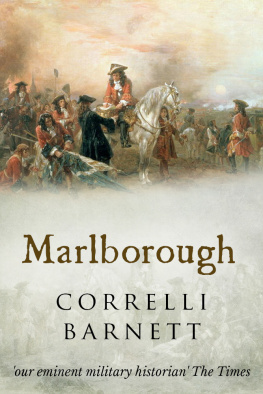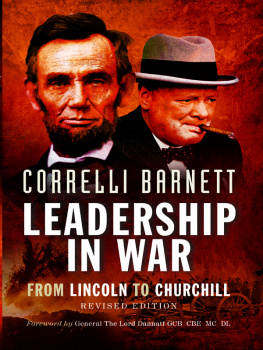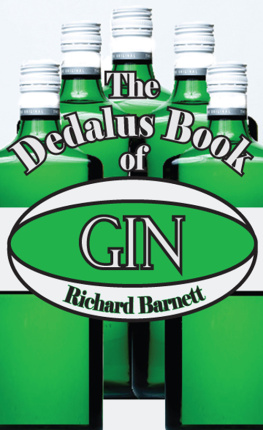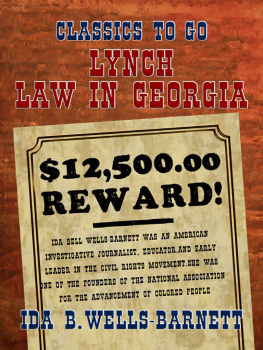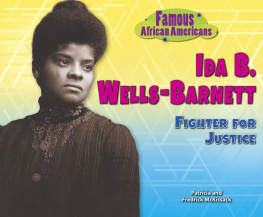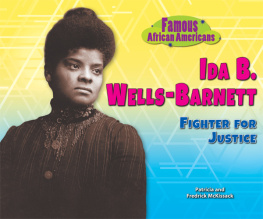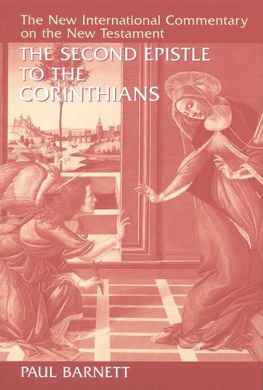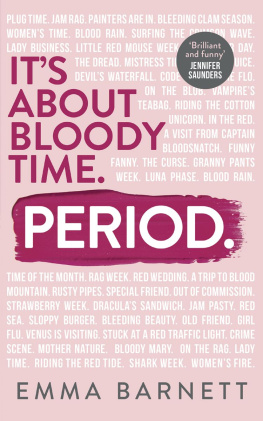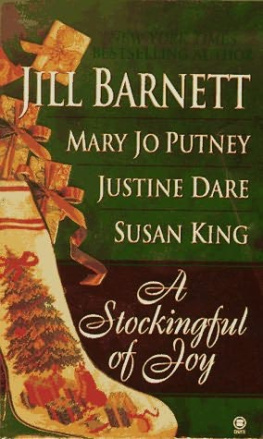Marlborough
Correlli Barnett
Correlli Barnett 2013
Correlli Barnett has asserted his rights under the Copyright, Design and Patents Act, 2001, to be identified as the author of this work.
First published in 1974 by Methuen.
This edition published in 2013 by Endeavour Press Ltd.
For Ruth, My Wife, Who Does So Much
War is the province of uncertainty.
KARL VON CLAUSEWITZ
... uncertainty is the worst of all conditions,
for death itself is easier than the fear of it....
JOHN CHURCHILL, FIRST DUKE OF MARLBOROUGH
Table of Contents
Foreword
John Churchill, First Duke of Marlborough, has been little better served by some of his admirers than by his detractors. They have made of him an exemplary hero in the Victorian mould; a leader of flawless performance and yet at the same time remote and impersonal. The man himself has been buried, like a pharaoh in a pyramid, beneath a massive heap of military, political and diplomatic detail.
As a consequence Marlborough has become eclipsed in the national memory by Wellington, whose pungent outward personality is a gift to his biographers. Yet of the two men, John Churchill, Duke of Marlborough, is in many ways the richer and more interesting character - sensitive, emotional, highly strung even, pulled by complex motives, impulses and anxieties. Marlborough is, moreover, a tragic figure, whose gradual descent from greatness to dismissal is deeply moving.
The purpose of this book therefore is not to offer a 'definitive' scholarly study, omitting no fact or document, but to present Marlborough as a living, feeling man; a man enduring such strains and grappling with such a weight and variety of responsibility as have befallen no other English soldier in history.
C.B
Chapter One: The Parting by the Waters Side
For days he had been held in the Kentish port of Margate by contrary winds, but now the wind had veered westerly at last, and the ship was waiting for him to embark. Amid a throng of officers Her Majesty's Captain-General and Ambassador-Extraordinary to the Dutch Republic, John Churchill, Earl of Marlborough, took leave of his wife Sarah. Their marriage had already known many such enforced farewells; nor was it a novelty to them that such private moments as this, charged with feeling, should take place under numerous watchful eyes. John and Sarah Marlborough had been accustomed to living in public since they each of them came to court long ago in the reign of the late King Charles II. They were so close in love and understanding that they could be alone together even in a crowd.
Yet this parting was special. Three weeks earlier, on 4 May 1702, Garter King of Arms, escorted by heralds, had ridden out from St James's Palace in a blaze of tabards to Charing Cross and the City of London, and there proclaimed amid shrilling trumpets and unthinking cheers the Queen's declaration of war on Louis XIV of France. Marlborough was now on his way to the Netherlands to shoulder the responsibility of leading a ramshackle coalition of European states against the French absolute monarchy, the super-power of the time.
He was fifty-two; six years older than Wellington and Napoleon when their active service came jointly to an end at Waterloo. By the standards of Marlborough's own era, indeed, a man at the age of fifty-two was thought to be ripening towards his retirement and old age.
Nevertheless, he still looked remarkably young, 'with a clear red and white complexion which could put the fair sex to shame', (1) in the words of a Dutch contemporary. Although the flesh was thickening a little along the line of the jaw he still remained almost impossibly handsome, his features uniting strength and grace like a classical hero in a painting come to life in a periwig instead of a laurel wreath. Under a broad, high forehead and darkly curving eyebrows his eyes were large and luminously blue; and in their calm gaze there was imagination as well as high authority. Beneath the straight nose, the lips were firm and sensuous; the skin muscles round the mouth and chin taut with leashed energy. Marlborough was of middle height, 'with as fine a figure as you could see'. (2) That he was usually rather carelessly dressed only added to the easy charm which was one of the most formidable components of his personality.
Of all the men that I ever knew in my life, [Lord Chesterfield was to recall] (and I knew him extremely well), the late Duke of Marlborough possessed the Graces in the highest degree, not to say engrossed them... His figure was beautiful, but his manner was irresistible, by either man or woman. (3)
Had it not been for his commanding presence the man who was bidding a reluctant farewell to his wife on the Kentish seashore that spring day might have been a beau stepped out of a play by Congreve: a Mirabel of a general. And back in the late 1660s and 1670s Marlborough, as Jack Churchill, a hard-up young officer in the Duke of York's household, had been just such a sparkish rake. He had fought at least two duels and been wounded in both. The most notorious of his love affairs had brought him to bed with Charles II's own mistress, the luscious and animated Barbara Villiers, Lady Castlemaine and later Duchess of Cleveland. They became lovers in 1671, when he was twenty and she was twenty-nine. Their mutual entertainment had lasted for three years; and Barbara's last child, a daughter born in 1672, was almost certainly his. An untimely visit by the King to Barbara's chamber had inspired Churchill to an early display of presence of mind and physical courage in a crisis. Although her chamber was on the first floor he escaped discovery by jumping from the window into the courtyard.
In 1702, however, all that remained of dashing Jack Churchill of the First Guards were the slim good looks, the virility and the charm. The rake in him had died in 1675, when he first set eyes on fifteen year-old Sarah Jennings, one of the Duchess of York's maids of honour, and for the first and last time in his life he fell in love. Now that she was forty-two, and thickened by many pregnancies, he was still completely absorbed by her, to the covert amusement of a polite world in which marital fidelity was not exactly fashionable. In middle age Sarah had become majestic in her beauty, with straw-blonde hair springing thickly from a fine forehead, brilliant colouring and a masterful glance; some felt rather too masterful. An admirer attempted to convey her fascination to a friend of his:
Did you know her but half as well as I have the happiness to do, she would make you think of her as one said of the sea, that it infinitely surprised him the first time he saw it, but that the last sight of it made always as wonderful an impression as if he had never observed it before. She hath a most acute and elevated understanding, equally partaking of the solid as well as the shining faculty, a mind so richly furnished with all those amiable talents of prudence, justice, generosity, constancy and love of her native country that she ought to have been born in the golden age! (4)
Now she had jolted down by coach to the little harbour of Margate to see 'my dear Lord Marl' off to the wars. They would not see each other again until the beginning of next winter, when he returned after the year's campaign; if indeed he did return, for in the eighteenth century generals faced the same dangers as their private soldiers.
They parted, and he was alone in his cabin as the ship made sail towards the Netherlands. Ahead of him lay a host of intricate problems, a colossal burden of responsibility, incalculable risks and perils. But his mind was not on all that awaited him at his landfall, but on Sarah. He yielded to an overriding need to reach out to her again, even if only in a letter:

